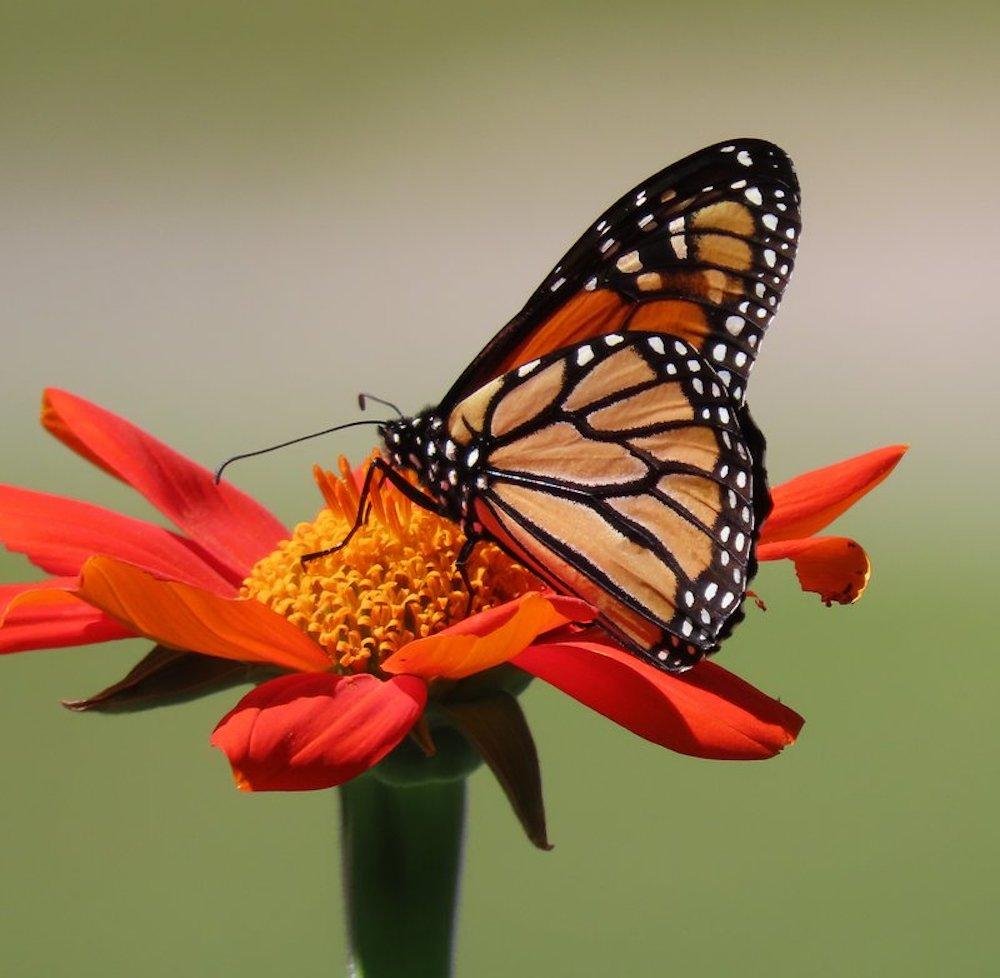arizona
Feds Take Bold Step to Classify Monarch Butterflies as Endangered Species

The U.S. Fish and Wildlife Service (FWS) has announced plans to protect the monarch butterfly, a once-common species, by listing it as threatened under the Endangered Species Act. This move is a significant step, reflecting concerns about the insect’s declining populations across North America.
In an effort to refine conservation strategies, FWS will invite public comments on its proposal until March 12, 2025. Agency Director Martha Williams emphasized the monarch as a beloved symbol of nature, urging collective action to ensure its survival. “Providing enough milkweed and nectar plants, even in small areas, can help put them on the road to recovery,” she stated.
The Tucson-based Center for Biological Diversity welcomed the announcement, linking it to a decade of advocacy aimed at securing protections for the butterfly. They noted that the Endangered Species Act will provide not just protection, but a comprehensive recovery plan, which includes financial support for habitat restoration.
Senior scientist Tierra Curry cautioned that the plight of the monarch signals a broader environmental crisis. “What’s bad for monarchs is bad for humans,” she remarked, highlighting the interconnectedness of ecosystem health.
The monarch’s status has become a focal point in conservation discussions. In 2023, Canada classified the species as endangered under its Species At Risk Act, while Mexico considers it of special concern. Additionally, the International Union for Conservation of Nature has listed the butterflies as vulnerable.
The eastern population of monarchs has experienced an alarming decline of approximately 80%, and the western population has plummeted by over 95%. Experts warn that the western monarch is at risk of total collapse without significant intervention.
Factors contributing to this decline include habitat loss, pesticide exposure, and climate change. FWS stresses that while many efforts have been made to conserve the butterfly, more protections are needed for future sustainability.
Conservation organizations, including the Center for Biological Diversity and Xerces Society for Invertebrate Conservation, have pressured FWS for action since a significant population drop was recorded in a 2014 count.
The butterflies were placed on a waiting list for protection in 2020, but external pressures, including legal action, have accelerated the current proposal process. FWS argues that the Endangered Species Act has proven effective in conservation efforts, claiming it offers a 99% success rate at preventing extinction.
Every summer, monarchs undertake one of the longest migrations of any insect, traveling from northern regions of the United States and southern Canada to overwinter in Mexico. Recent estimates indicated only about 2.2 acres of monarchs overwintering in Mexican forests, far below the 15 acres necessary for a stable population.
Historically, millions of monarchs were observed during migration; for instance, over 4.5 million western monarchs were recorded in the 1980s. The ongoing decline has been attributed to habitat loss due to agricultural practices, specifically the eradication of milkweed, crucial for the larval stage.
Additionally, the rise of harmful insecticides has compounded the problem, posing threats not only to monarchs but also to other vital pollinators. The effect of urban sprawl has further reduced the wildflower-rich areas that monarchs depend on for nectar.
In response, several stakeholders, including farmers and conservationists, are collaborating to create sustainable habitats. Judy Camuso, president of the Association of Fish and Wildlife Agencies, highlighted the importance of partnerships in conservation efforts.
FWS plans to protect around 4,395 acres of crucial habitat for the monarch at overwintering sites along the California coast, acknowledging the role of these locations in supporting the species’ lifecycle.
Further details about the proposal will be published in the Federal Register on December 12, 2023, which will kick off a 90-day comment period. FWS is also facilitating public hearings and virtual meetings, signaling an inclusive approach to conservation.
“Everyone can play a role in saving the monarch butterfly,” reiterated FWS. Participation from all sectors of society is essential for implementing effective conservation strategies for the species.


















